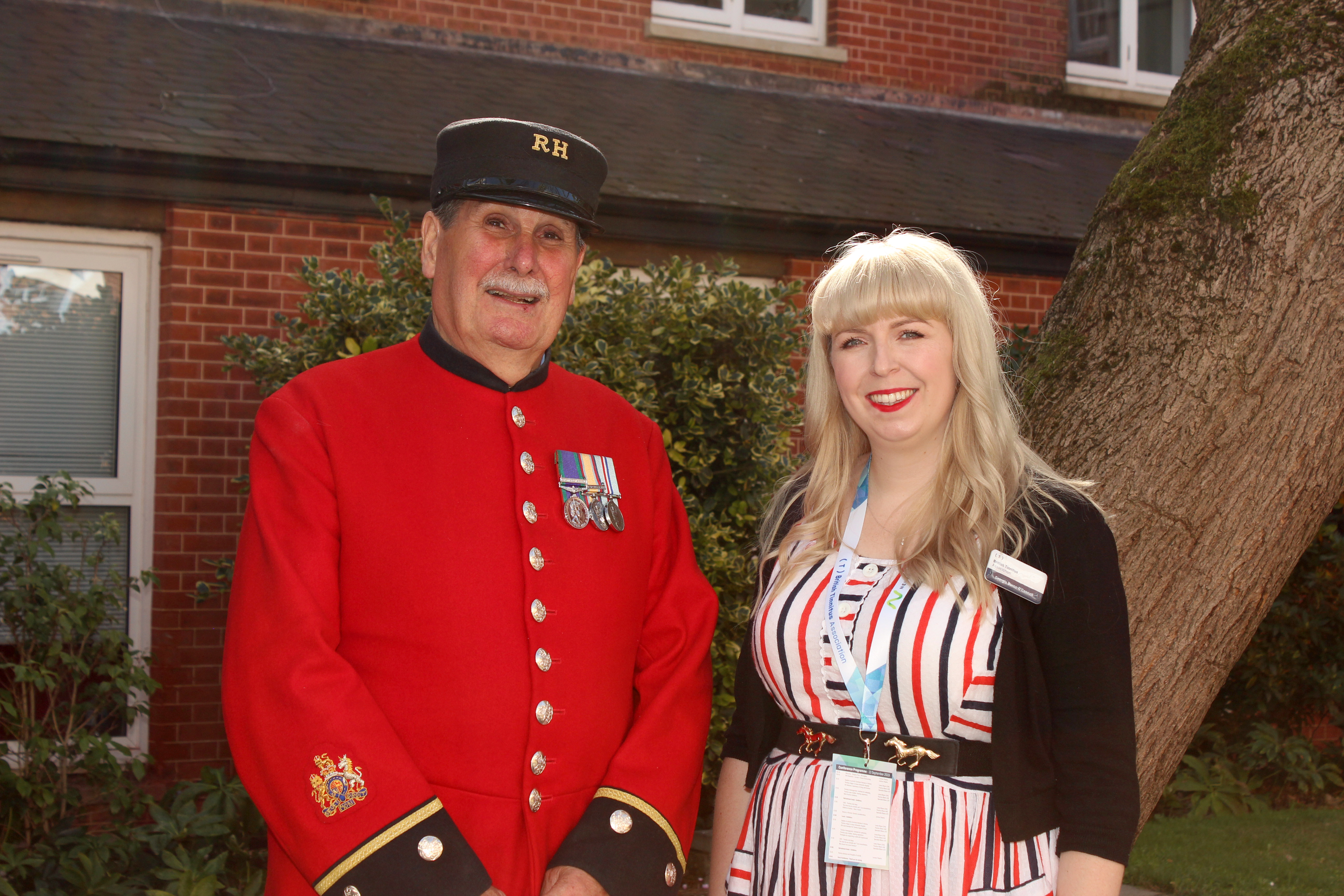Veterans experience more severe tinnitus and ‘military mindset’ is a barrier to seeking help: report
older military veterans in the UK experience more severe symptoms of tinnitus than other groups of people
Embargoed until 11/11/2019
Expert interviews, case studies and photo opportunities available
November 2019 Research carried out by the British Tinnitus Association has identified that older military veterans in the UK experience more severe symptoms of tinnitus than other groups of people. Veterans find that their tinnitus is more intrusive, has more of an emotional impact and that its effect on hearing is greater but that the ‘military mind’ and other beliefs mean that they endure it rather than seek help.
Tinnitus is defined as the experience of sounds with no external source, most commonly ringing or buzzing, but sometimes experienced as whooshing, clicking or even music. Around one in eight people experience persistent tinnitus. For some, the condition has a significant impact on their quality of life, often linked to stress, anxiety or sometimes depression. There are over 1.4 million older veterans in the UK, and around one quarter of them have hearing related problems.
Dr Georgina Burns-O’Connell, who led the research, said: “Little is known about the impact of tinnitus on UK veterans. Service in the military can involve exposure to high levels of noise, resulting in many veterans experiencing hearing loss and tinnitus, which can continue beyond their service. In the USA, tinnitus is the number one service-related disability.”
“Our research found that over half of older veterans had lived with tinnitus for over 20 years, with many experiencing more severe symptoms than found in other groups of people. Our veterans also showed a lack of knowledge about tinnitus and the available management options. A number of beliefs prevented veterans from seeking help for their tinnitus – they believed there were no effective treatments as there is currently no cure, and that tinnitus was not a priority to take care of compared to other conditions they might be experiencing.”
Dr Burns-O’Connell added: “The veterans thought of themselves as different to civilians, and the ‘military mind’ was an integral part of that. This ‘military mind’ meant that many were more accepting of difficult situations, and had accepted their tinnitus and would rather endure it than seek help.”
Arthur Currie, a Chelsea Pensioner with 34 years of military service agreed with the report’s findings: “During my years of service in the British Army, I was exposed to noise from all types of weapons. Over time I became aware of an almost constant ringing in my ears. However, like all the other soldiers, I never discussed it. The most important message that I would like to give to GPs and hearing specialists is how to approach and advise old soldiers like me. We fear being labelled as disabled. Most of us are not willing to admit to having tinnitus or we just accept it as ‘par for the course’. It will take gentle persuasion to convince us that correcting our hearing loss and other measures can make tinnitus much less of a problem.”
The report concludes with four recommendations for Government, health care professionals and service providers:
- Inform. Share information with the veteran community and their friends and family about what tinnitus is and how it may be experienced.
- Prevent (worsening) tinnitus through training about healthy hearing behaviours with the veteran community.
- Encourage aged veterans to challenge any potential tinnitus help-seeking barriers.
- Educate the public about who is a veteran, and the characteristics of the ‘military mind’.
The report can be obtained from the British Tinnitus Association website at www.tinnitus.org.uk/aged-veterans-project-final-report
The research was undertaken in collaboration with Dr Derek Hoare at the University of Nottingham, and funded by The Royal British Legion from the Aged Veterans Fund, funded by the Chancellor using LIBOR funds.
Ends
Editors Notes
- The British Tinnitus Association is an independent charity which supports over 1 million people per year who experience tinnitus and advises medical professionals from across the world. It is the primary source of support and information for people with tinnitus in the UK.
- Not an illness or disease, tinnitus is a term that describes the sensation of hearing a noise in the absence of an external sound. The noise can have virtually any quality. Ringing, whistling, and buzzing are common, but more complex sounds may also be reported.
- About 1 in 3 people will experience tinnitus at some point in their life. Over 7 million adults in the UK are living with persistent tinnitus, and for 10% of them, it can severely impact their quality of life, affecting sleep, mood, concentration, employment and relationships.
- There are around 1.05 million GP consultations for tinnitus in the UK each year, and tinnitus costs the NHS £750 million annually, with a cost to society of £2.7 billion per year.
- The number of people living with tinnitus in the UK is set to rise by more than half a million people by 2028
For more information
Nic Wray, Communications Manager
0114 250 9933
British Tinnitus Association
Ground Floor Unit 5 Acorn Business Park
Woodseats Close
Sheffield, S8 0TB
www.tinnitus.org.uk
Twitter: @BritishTinnitus
Facebook: BritishTinnitusAssociation
Instagram: britishtinnitusassociation
LinkedIn: British Tinnitus Association
The British Tinnitus Association is a registered charity. Registered charity number 1011145.
Press release distributed by Pressat on behalf of Tinnitus UK, on Monday 11 November, 2019. For more information subscribe and follow https://pressat.co.uk/
Tinnitus Hearing Deafness Hard Of Hearing Meeting British Tinnitus Association Veterans Research Royal British Legion Charities & non-profits Health
You just read:
Veterans experience more severe tinnitus and ‘military mindset’ is a barrier to seeking help: report
News from this source:



